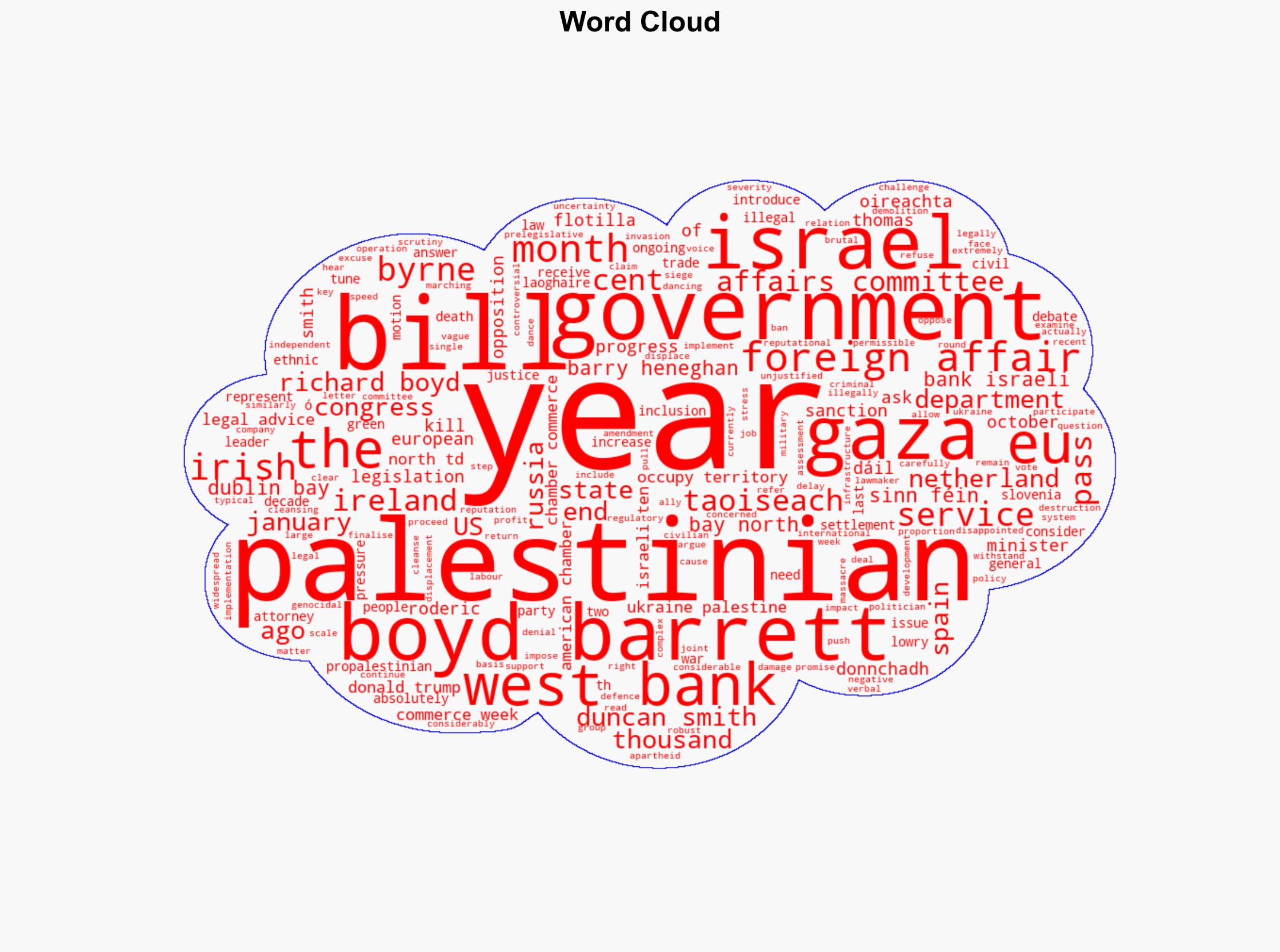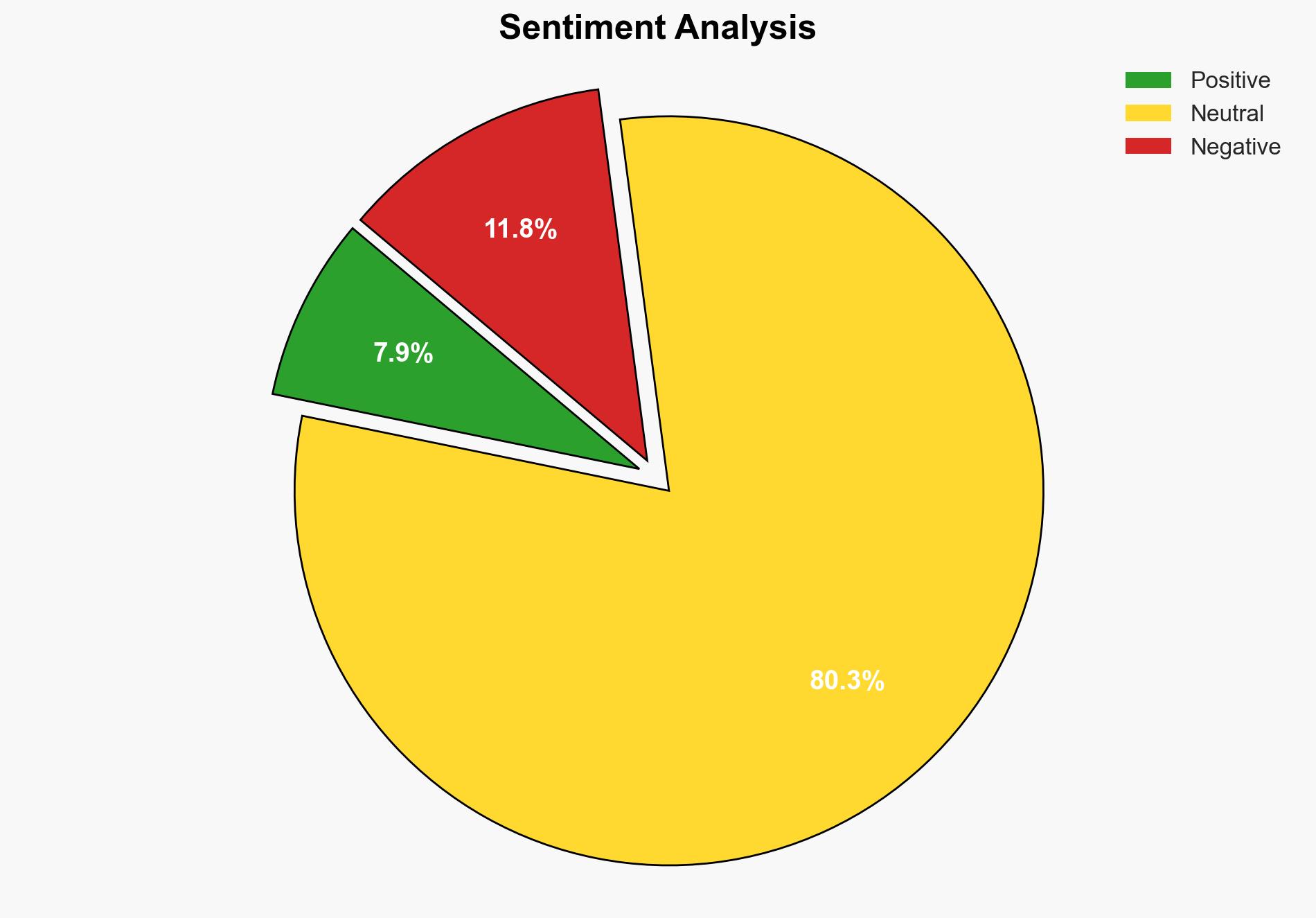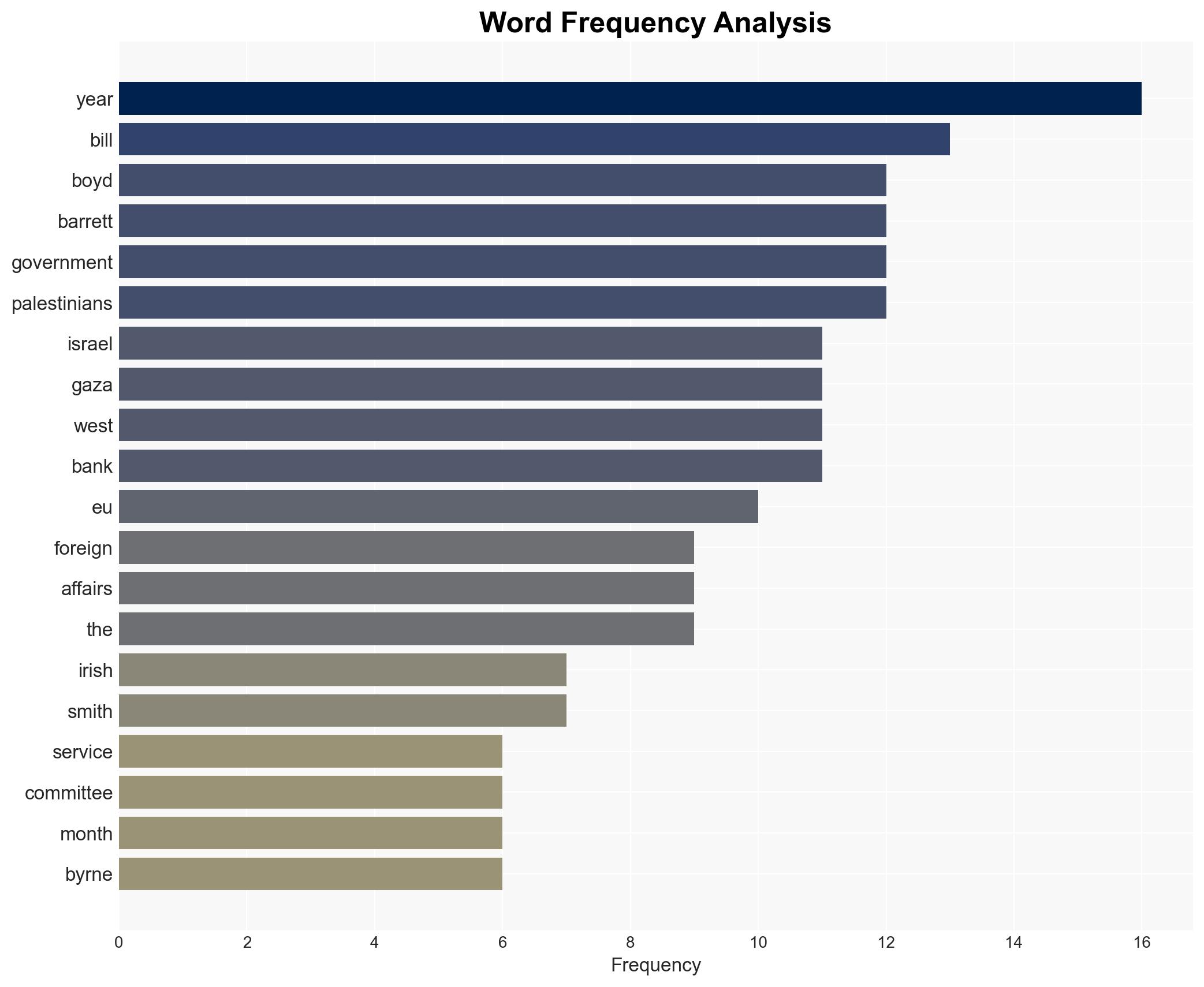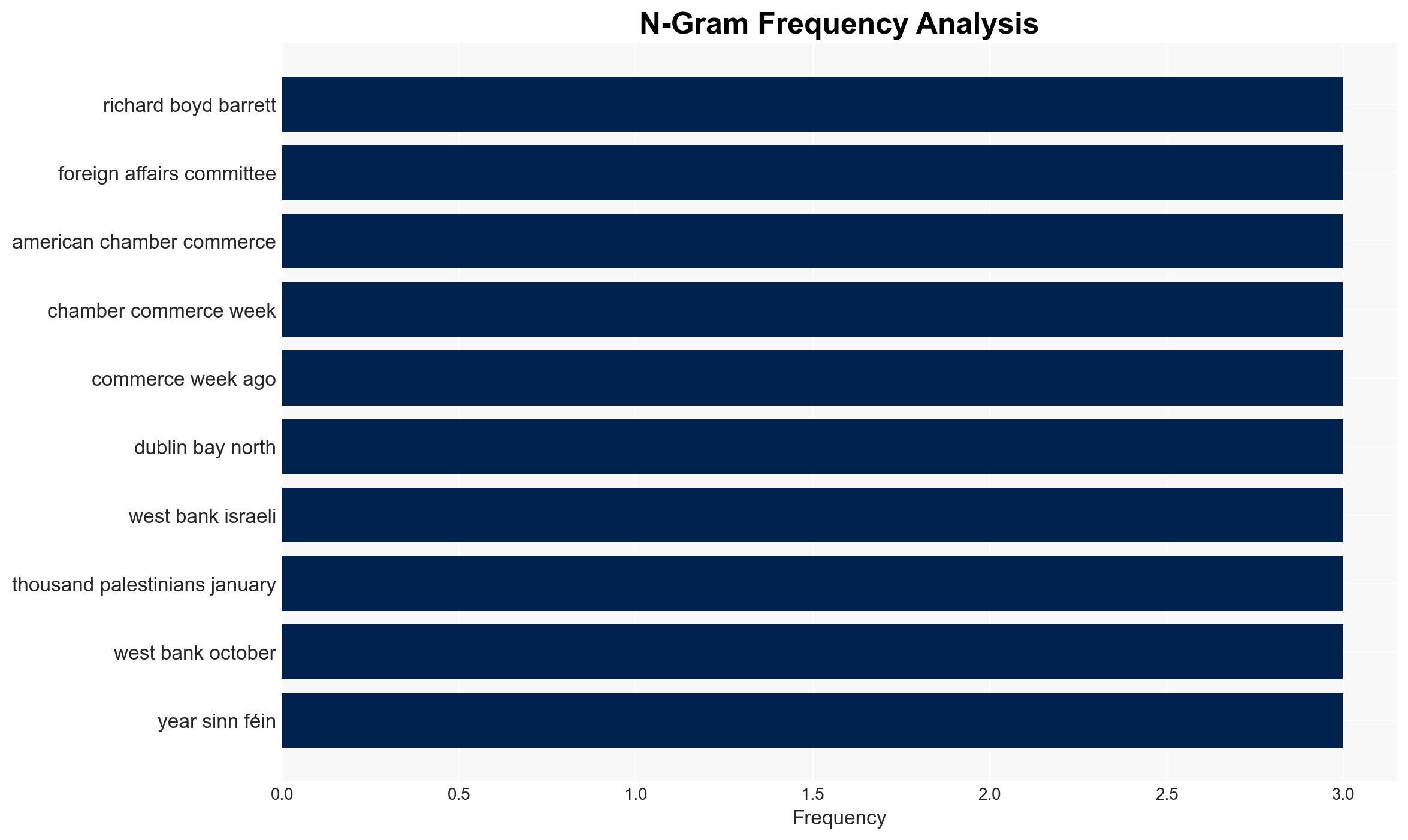Occupied Territories Bill Three EU countries have passed Bills sanctioning Israel Dil told – The Irish Times
Published on: 2025-11-19
AI-powered OSINT brief from verified open sources. Automated NLP signal extraction with human verification. See our Methodology and Why WorldWideWatchers.
Intelligence Report:
1. BLUF (Bottom Line Up Front)
The passage of bills by Spain, Slovenia, and the Netherlands to sanction Israel over occupied territories indicates a growing EU divide on Middle Eastern policy, potentially pressuring Ireland to follow suit. The most supported hypothesis is that these actions are part of a broader EU trend toward increased accountability for Israel’s actions in occupied territories. Confidence level: Moderate. Recommended action: Ireland should conduct a comprehensive legal and economic impact assessment before proceeding with similar legislation.
2. Competing Hypotheses
Hypothesis 1: The passage of these bills is part of a coordinated EU effort to increase pressure on Israel to change its policies in the occupied territories. This hypothesis is supported by the simultaneous actions of multiple EU countries and the shared rhetoric concerning human rights violations.
Hypothesis 2: The bills represent independent national actions driven by domestic political pressures rather than a coordinated EU strategy. This hypothesis is supported by the lack of a unified EU policy and the varying levels of economic and political ties each country has with Israel.
Hypothesis 1 is more likely given the timing and similar legislative content across multiple countries, suggesting a trend rather than isolated actions.
3. Key Assumptions and Red Flags
Assumptions: It is assumed that the legal frameworks in these countries align sufficiently to allow for similar legislation. It is also assumed that there is sufficient political will within Ireland to pass similar legislation.
Red Flags: The potential for economic retaliation from Israel or its allies, particularly the United States, which could impact Ireland’s economy. Additionally, the possibility of legal challenges within the EU framework could delay or nullify such legislation.
4. Implications and Strategic Risks
The passage of similar legislation by Ireland could lead to increased diplomatic tensions with Israel and potentially the United States, impacting trade and political relations. There is also a risk of internal political division within Ireland, as seen in the debate over the bill. Furthermore, if the EU does not present a unified stance, it could weaken the effectiveness of these sanctions and lead to intra-EU conflicts.
5. Recommendations and Outlook
- Conduct a thorough legal review to ensure any proposed legislation can withstand international legal challenges.
- Engage in diplomatic discussions with EU partners to assess the potential for a coordinated approach.
- Prepare for potential economic impacts by diversifying trade partnerships.
- Best-case scenario: A coordinated EU approach leads to meaningful policy changes in Israel without significant economic repercussions.
- Worst-case scenario: Economic retaliation from Israel and its allies leads to significant economic downturns and political instability within the EU.
- Most-likely scenario: Incremental policy changes in Israel with moderate economic impacts on Ireland and the EU.
6. Key Individuals and Entities
Richard Boyd Barrett, Duncan Smith, Thomas Byrne, Roderic O’Gorman, Barry Heneghan, Donnchadh Ó Laoghaire.
7. Thematic Tags
National Security Threats, EU-Israel Relations, Economic Sanctions, Middle Eastern Policy
Structured Analytic Techniques Applied
- Cognitive Bias Stress Test: Expose and correct potential biases in assessments through red-teaming and structured challenge.
- Bayesian Scenario Modeling: Use probabilistic forecasting for conflict trajectories or escalation likelihood.
- Network Influence Mapping: Map relationships between state and non-state actors for impact estimation.
Explore more:
National Security Threats Briefs ·
Daily Summary ·
Support us





